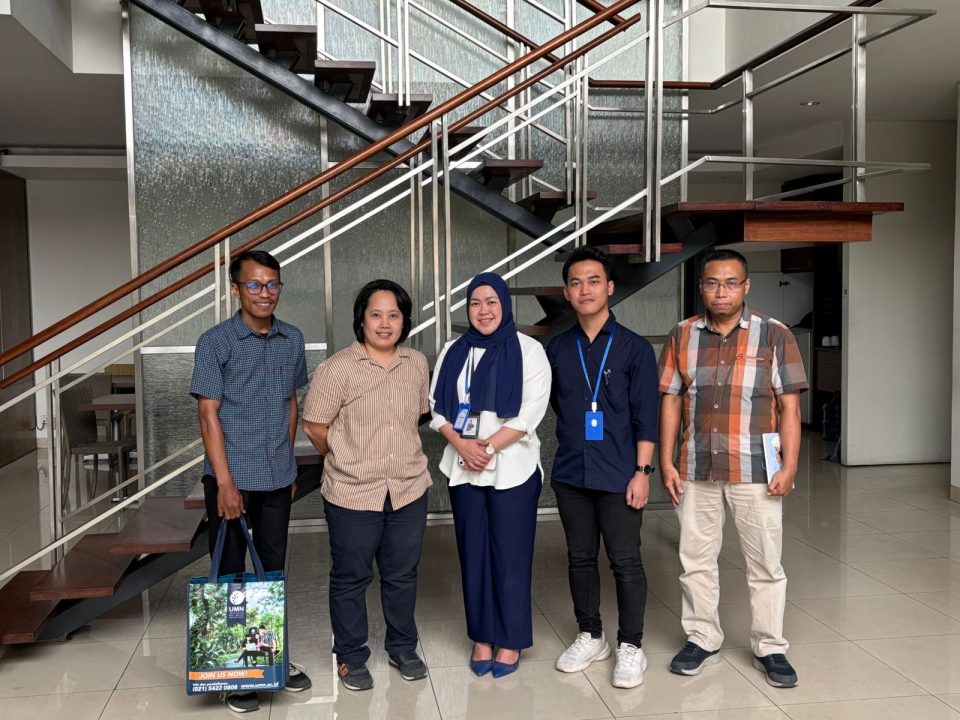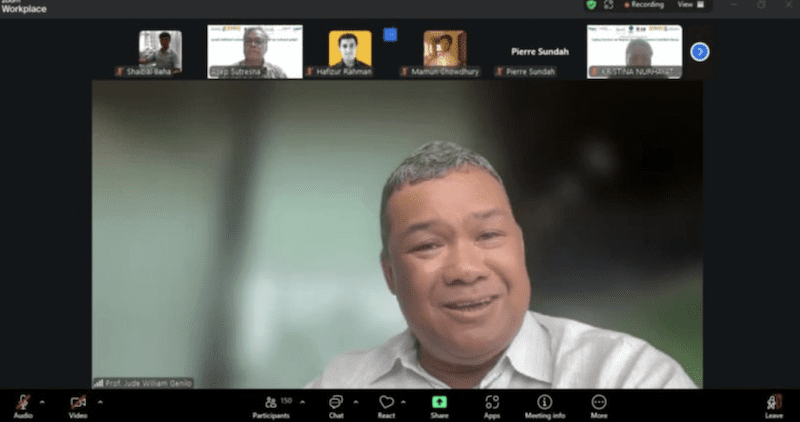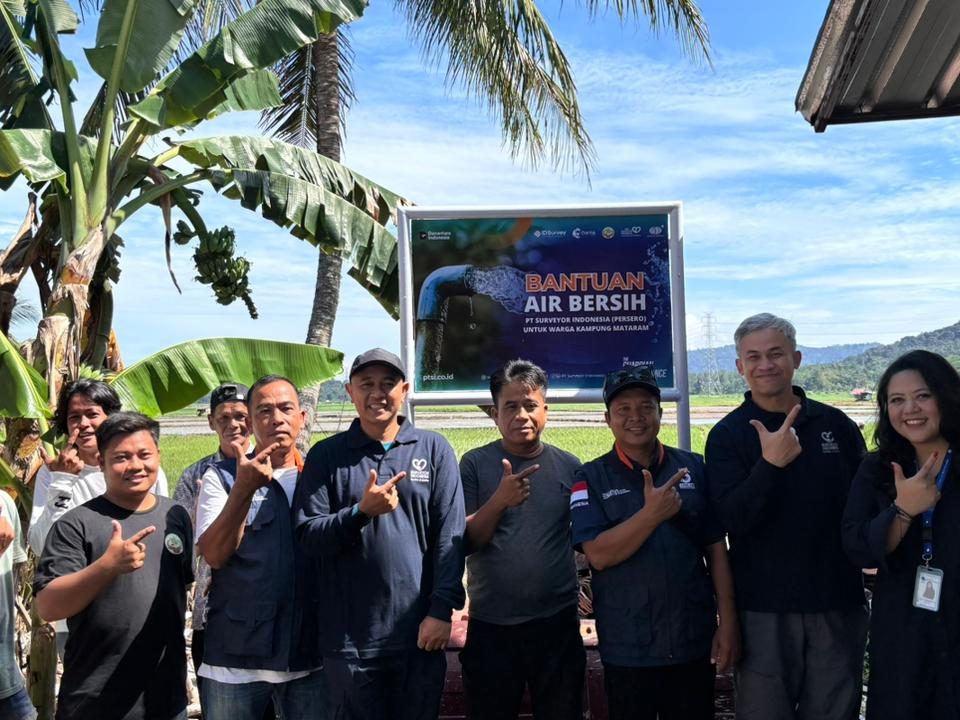
Driving Sustainable Development, UMN’s Focus on Global Best Practices and International Partnerships
December 11, 2024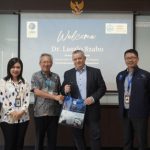
UMN Collaborates with Dennis Gabor University, Hungary
December 13, 2024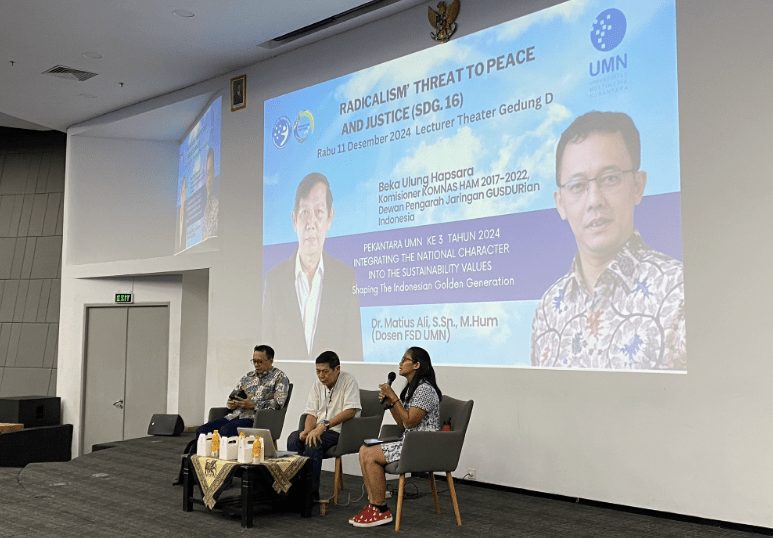
Seminar by Beka & Matius (Doc. UMN)
Tangerang – Continuing on the third day of Pekantara UMN on (11/12/2024), a seminar on radicalism for students was conducted. This seminar aimed to educate students about the dangers of radicalism for the peace of the country. It was presented by Beka Ulung Hapsara as Commissioner of the National Human Rights Commission 2017-2022 and the Governing Board of the Indonesian GUSDURian Network and Dr. Matius Ali, S.Sn., M.Hum., Lecturer of the UMN Faculty of Arts and Design.
Indonesia is a multicultural country with various languages, tribes, and beliefs. This should make the Indonesian state and its people uphold tolerance. However, looking at the current reality, there is still a lot of intolerance and radicalism in Indonesia, which can endanger the multicultural Indonesian society.
“When talking about tolerance and intolerance, the roots can be seen from two things: freedom of religion and belief and freedom of opinion and expression. Radicalism is not about religion and religious teachings, politics, or economics, but from perspectives. But if you look at freedom of religion, the scope is conscience and religion. The second scope is to choose one’s own beliefs. From human rights, humans can choose to have a religion or not, as well as the freedom to carry out beliefs in worship activities, experience, and teaching,” Beka said.
Although every human being has the right to choose their own beliefs, the state can still provide restrictions. The limitation defined here is the restriction of freedom of religion, and it is only done if needed. Beka gave an easy example, such as someone performing worship in the middle of the road that disturbs the right to public honor or threatens public and personal security.
“Another thing is that every human being has freedom of opinion and expression. This includes the freedom to seek, give, and receive information. The form of information can also be through many ways– pictorial, oral, or printed. It is the same with Pekantara’s activities, where students are free to express through information and convey it to the public,” Beka continued.
Beka also described the impact of radicalism on humans, such as violence in various forms, one of which is terrorism, trauma, communal conflicts, economic losses, and restrictions on freedom of religion and expression.
Matthew continued the seminar by discussing radicalism from a philosophical perspective. For Matthew, radicalism can arise because radical politics grows, and many people interpret it in the wrong way. For Matius, understanding something deeply is a good thing, but it should not be in a narrow direction.
“What can we do? It is moderation, which comes from the Latin moderátio, which means moderateness: not too much, not too little. This means that we must have self-control of our attitudes both in excess and deficiency,” Matthew said.
For Matius, religious moderation must show a tolerant attitude and appreciation of the differences that exist. We need to accept the existence of other parties and reject violence. This religious moderation can be the key to fostering tolerance and peace both locally, nationally, and internationally.
“Plato revealed that one legacy, ‘pramila‘ will not work without justice. So, justice is actually the main axis. If it is not balanced, conflict can occur,” Matthew concluded.
By Rachel Tiffany Tanukusuma | UMN News Service
English translation by Levina Chrestella Theodora
Kuliah di Jakarta untuk jurusan program studi Informatika | Sistem Informasi | Teknik Komputer | Teknik Elektro | Teknik Fisika | Akuntansi | Manajemen | Komunikasi Strategis | Jurnalistik | Desain Komunikasi Visual | Film dan Animasi | Arsitektur | D3 Perhotelan , di Universitas Multimedia Nusantara. www.umn.ac.id

